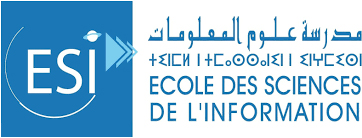The School of Information Sciences (ESI) is organizing in partnership with the UNESCO and The Arab Federation for Libraries and Information, its first “International Conference on Cultural Engineering and Heritage Development” on “Cultural and Creative Industries in Africa and the Arab World“. Rabat, December 4-5, 2024.
Call for Papers
The main objective of this first edition of the International Conference on Cultural Engineering and Heritage Development is to approach the Cultural and Creative Industries (CCI) in African and Arab contexts and their evolution in the era of postmodernism; era that is characterized by focus on knowledge, intangibility and digitalization. While the core of CCIs remains in works of art, artistic expressions, cultural heritage, and traditional know-how, the production and reproduction models of art and culture have continued to reinvent themselves, as is the case with those of creation. Thus, from an interdisciplinary perspective, the main themes of this conference focus on the complexity of CCIs in Africa and the Arab world, their specificities, and the issues their development generates.
The sectors of CCIs have been diversified and their structures as well, introducing new actors into the field of culture and art and raising new societal issues. Between a public museum, a private gallery, a production company, and a digital platform, the challenging equation of culture as a common good and its industrialization as well as commodification is also at play. It is interesting to note here that the theory of Cultural Industry formulated in the first half of the last century, and whose denomination is adopted today worldwide (Cultural Industries, Cultural and Creative Industries), had a critical perspective regarding mass culture and its industrial aspect.
The actors of CCIs nowadays are numerous. Firstly, there are those who operate in the sectors of creation, production, distribution/dissemination, and commercialization of goods, services, and activities with cultural, artistic, and hereditary dimensions. Secondly, there are the regulatory actors; these include public institutions, national and international associations, non-governmental organizations, and federations. Their mission is to regulate this sector, accompany its development, and address the challenges and issues it raises. Further, with the professionalization of CCIs, actors of training and research constitute a key player in the construction and development of these sectors.
How do culture and art in Africa and the Arab world fit into this complex ecosystem? Several tributaries nourish African and Arab culture, heritage and art. As the land of written and oral civilizations and diversity (from East to West Africa, from North to Central and Southern Africa), the history and cultural legacies of ancient kingdoms and tribes from the East to the West, from the civilizations of North Africa, from the history of modern times and colonization stand out.
Thus, the history, cultures, and arts of the lands of Africa and the Arab world make them today a breeding ground for creative economy, innovation, and inclusive social development. Already, alongside the issues that permeate CCIs in general, other issues linked to innovative and sustainable projects and initiatives will specifically be African and Arab. These include aspects related to the reality of CCIs nowadays: economic growth and the virtual world, job creation as well as the development of fragile territories, the specificity of cultural entrepreneurship, and the position occupied by CCIs in national as well as international markets. Also, on the agenda are questions related to the diversity in Africa and the Arab world and to societal and cultural responsibility.
Fields of the Conference
A: Cultural and creative industries and social development and and economic integration in Africa and the Arab world
1. Cultural and creative industries and economic integration
2. Cultural consumption and transactions of cultural goods and services
3. The role of artistic and cultural innovation in the rehabilitation of urban and rural areas
4. Cultural and creative industries and the promoting of sustainable development.
B: Cultural policies and the management of cultural industries in Africa and the Arab world
1. The role of cultural policies in developing the activities of cultural institutions.
2. Legal and financial frameworks for developing cultural industries.
3. Copyrights and the evaluation of arab and africain cultural content.
4. The role of libraries and information institutions in reinforcing innovation and Cultural and creative industries
5. Professionalization and scientific research
6. Cultural policies in the digital age
C: cultural and creative leadership in Africa and the Arab world
1. Cultural entrepreneurship in social and economic contexts.
2. New forms of restructuring cultural organizations.
3. Financing cultural projects.
4. Entrepreneurial dynamics in sectors relating to cultural activities: live art, heritage, museums, music, visual arts, theater, cinema, and publishing.
5. Optimization of return on investment in the favor of libraries and cultural heritage institutions.
D. Heritages in Africa and Arab World, challenges and perspectives
1. Documentation and interpretation of cultural heritages.
2. Archives and Museums.
3. Cultural heritage and digital.
4. Heritage restitution.
Partners
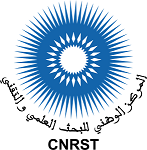

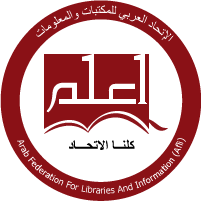
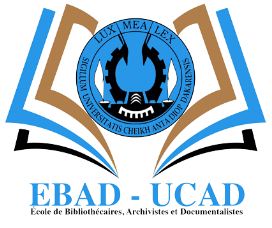
Calendar
June 10th: Deadline for submission of paper proposals.
July 1th: Response from the scientific committee.
October 2nd: Reception of final papers.
October 29th: Response from the scientific committee.
Abstract submission procedures
Contributors are invited to send a 500-word abstract in one of the conference languages (Arabic, French, or English). It should include the main issue dealt with, the research subject investigated, the methodology adopted, and 5 keywords. It should be sent to the following address:
Paper submission procedures
The first page should include the name, status, and institutional affiliation of the author(s) as well as the contact details. The second page should include the title of the paper, the paper proposal, and 5 keywords.
The paper should be between 3000 and 5000 words, in Times New Roman size 14 for titles and Times New Roman size 12 for the text. Bibliographic references should be written according to the APA standard.
Accepted papers will be published in the conference proceedings.
Languages
Arabic, French, English
Ways of participation and supporting
The conference is in a hybrid mode.
For speakers who prefer face-to-face participation, they have to bear transportation and accommodation costs, while being exempt from the fees for participation in the Conference.
General coordination
– Pr Hassan EL OUAZZANI
Scientific Coordination
– Abdelmjid LAFRAM
– Hassan EL OUAZZANI
– Hayat ZEROUALI
– Rachid GOUARTI
– Nezha HACHAD
Organizing Committee
– Adil CHOURAK
– Chahinaz FRID
– Nora CHERRAT
– Nora SAAD
– Smahane JBILOU
– Soukaina TAHIRI
Contact and Practical Information
Conference Venue: Ecole des Sciences de l’Information. Avenue Allal El Fassi. Cité Al Irfane, Rabat-instituts. Rabat, Maroc.
Map: X4JM+RV Rabat
Phone: +212(0)537.774.904
Fax: +212(0)537.770.232
Web: http://www.esi.ac.ma/
eMail: cicdp2024@esi.ac.ma
Key note speakers
Dr Nabhan bin Harith Al Harasi
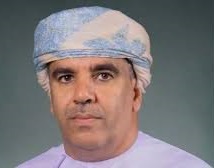
“Inversement opportunities in the cultural field within the arab world“
Pr Eugène Ébodé
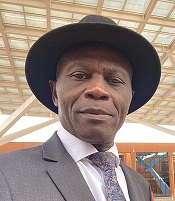
“Cultural diplomacy and cultural industries : time of Africa“
Scientific Committee
Abdelfettah BENCHENNA, Research Professor at Paris 13 University, France.
Abdellah Alaoui, Researcher, National Institute of Archaeology and Heritage, Rabat, Morocco.
Abdellah KARROUM, Researcher, art director and critic, United Kingdom.
Abdelmjid LAFRAM, Research Professor at the School of Information Sciences, Morocco.
Abdelouahed BEN-NCER, Research Professor at the National Institute of Archaeology and Heritage, Rabat, Morocco.
Abderrahman TENKOUL, Researcher, Dean of the Faculty of Humanities and Social Sciences, EUROMED University of Fez, Morocco.
Ahmed AYDOUN, Researcher, visiting professor at the School of Information Sciences, Rabat, Morocco.
Ahmed CHAOUKI BINEBINE, Director of Al-Hassania Library Rabat, Morocco.
Ahmed SKOUNTI, Research Professor at the National Institute of Archaeology and Heritage, Rabat, Morocco.
Alain BIDJECK, Founder of the MOCA Festival, Expert in diaspora and African music and cultural industries, Cameroon.
Ali AL AMERI, Writer, Managing editor of the magazine “All Nasher Ousbouai”, Sharjah, United Arab Emirates.
Ateba Ossende Fernand GHISLAIN, Researcher in cultural industries, Cameroon.
Bouchra El Idrissi, Professor researcher, School of information sciences, Rabat, Morocco.
Driss GUERRAOUI, Researcher, President of the Open University of Dakhla, Dakhla, Morocco.
Driss KSIKES, Researcher, Director of ECONOMIA Research HEM Research Center, Morocco.
Ehab BESSAISO, Researcher, Vice-President of Dar Al-Kalima University, Former Minister of Culture, Palestine.
EL Houssain EL MOUJAHID, Researcher, Secretary General of the Royal Institute of Amazigh Culture (IRCAM), Morocco.
El Mostafa FAYAD, Research professor at School of Information Sciences, Rabat, Morocco.
Fatima AIT M’HAND, Researcher specialized in cultural heritage, Morocco.
Fatima Zahra Salih, Professor researcher, Mohamed V university, Rabat, Morocco.
Fawzi Abdulrazak, Researcher in book, United States of America.
Hassan Awwad AL-SURAIHI, Professor of Information Science at King Abdulaziz University, Information Science Department, Jeddah, the Kingdom of Saudi Arabia.
Hassan El Geretly, researcher in Cultural and Creative Industries and Intangible Heritage, Director Founder of El-Warsha theatre troupe, Egypte.
Hayat ZEROUALI, Research Professor at the School of Information Sciences, member of ICOMOS Morocco.
Ibrahim ASBAN, Research Professor at the School of Information Sciences, Rabat, Morocco.
Issam EL YOUSFI, Research Professor at the Higher Institute of Dramatic Art and Cultural Animation, Rabat, Morocco.
Jamaa Baida, researcher, Director of Archives of Morocco.
Jamal BOUTAYEB, Research Professor at Sidi Mohamed Ben Abdellah University, Fes, Morocco.
Jean-Philippe Accart, Researcher, Head of the Library at Sciences Po Reims Campus, France.
José Miguel PUERTA, Arabist and Professor of Art History at the University of Granada, Spain.
Khaled AZAB, Researcher specialized in heritage”, Library of Alexandria, Egypt.
Khalid Aich, Archives of Morocco.
Khalid, El Harrouni, UNESCO Education and Research Chair in Sustainable Bioclimatic Urban Planning and Architecture, Deputy Director in charge of Research, National School of Architecture, Rabat, Morocco.
Imane, Hilal, Professor researcher, School of information sciences, Rabat, Morocco.
Luc Bertrand Ondobo, Researcher, Department of Arts and Archaeology, University of Yaoundé, Cameroon.
Mina El Mghari, Researcher, The University Institute of African, Euro-Mediterranean, and Ibero-American Studies, Mohammed V University, Morocco.
Mohamed Amine SBIHI, Research Professor, Former Minister of Culture, Morocco.
Mohamed BENDAHAN, Research Professor at Mohamed V University, Rabat, Morocco.
Mohamed Kbiri Alaoui, researcher, National Institute of Archaeology and Heritage, Rabat, Morocco.
Mohamed MAHDI, Professor researcher, the National School of Agriculture, Meknes, Morocco.
Moulay Driss JAÏDI, Research Professor at the Higher institute of Audiovisual and Film Professions, Rabat, Morocco.
Mouna El Gaied, research professor, University of Lorraine, France.
Moustapha Mbengue, Research Professor & Director at Ecole de Bibliothécaires, Archivistes et Documentalistes (EBAD) – Université Cheikh Anta Diop, Dakar, Sénégal.
Nogo Marie DÉSIRÉE, Researcher, Department of Studies in Education and Humanities, National Education Center, Cameroon.
Nozha IBNLKHAYAT, Research Professor at School of Information Sciences, Rabat, Morocco.
Nouzha Boudouhou, Professor researcher, Mohammed First University, Oujda, Morocco.
Nozha SMATI, Research Professor at the University of Lille, France.
Ramadan Ahmed Abdel Nabi Amer, Professor at the Faculty of Literature, Beni Suef University, Egypt.
Ramzi Turki, Professor researcher, University of Sfax, Tunisia.
Samir Kafas, Professor researcher, Faculty of Letters and human sciences, Sultan Moulay Slimane University, Beni Melal, Morocco.
Samir Kafas, Professor researcher, Faculty of Letters and human sciences, Sultan Moulay Slimane University, Beni Melal, Morocco.
Sylvestre Kouakou, Research Professor at Ecole de Bibliothécaires, Archivistes et Documentalistes (EBAD) – Université Cheikh Anta Diop, Dakar, Sénégal.
Wahid GDOURA, Research Professor at the Higher Institute of Documentation, University of Manouba, Tunisia.
Yacouba KONATE, Professor of Philosophy at Félix Houphouët-Boigny University of Cocody, Ivory Coast.
Yahya El YAHYAOUI, Researcher and lecturer in several universities and superior schools, in Morocco and abroad, Morocco.
Youssoufa Halidou HAROUNA, Researcher, Independent Research Center in Cinema and Audiovisual, University of Niamey, Niger.
Zoubir Chattou, Professor researcher, The National School of Agriculture, Meknes, Morocco.
